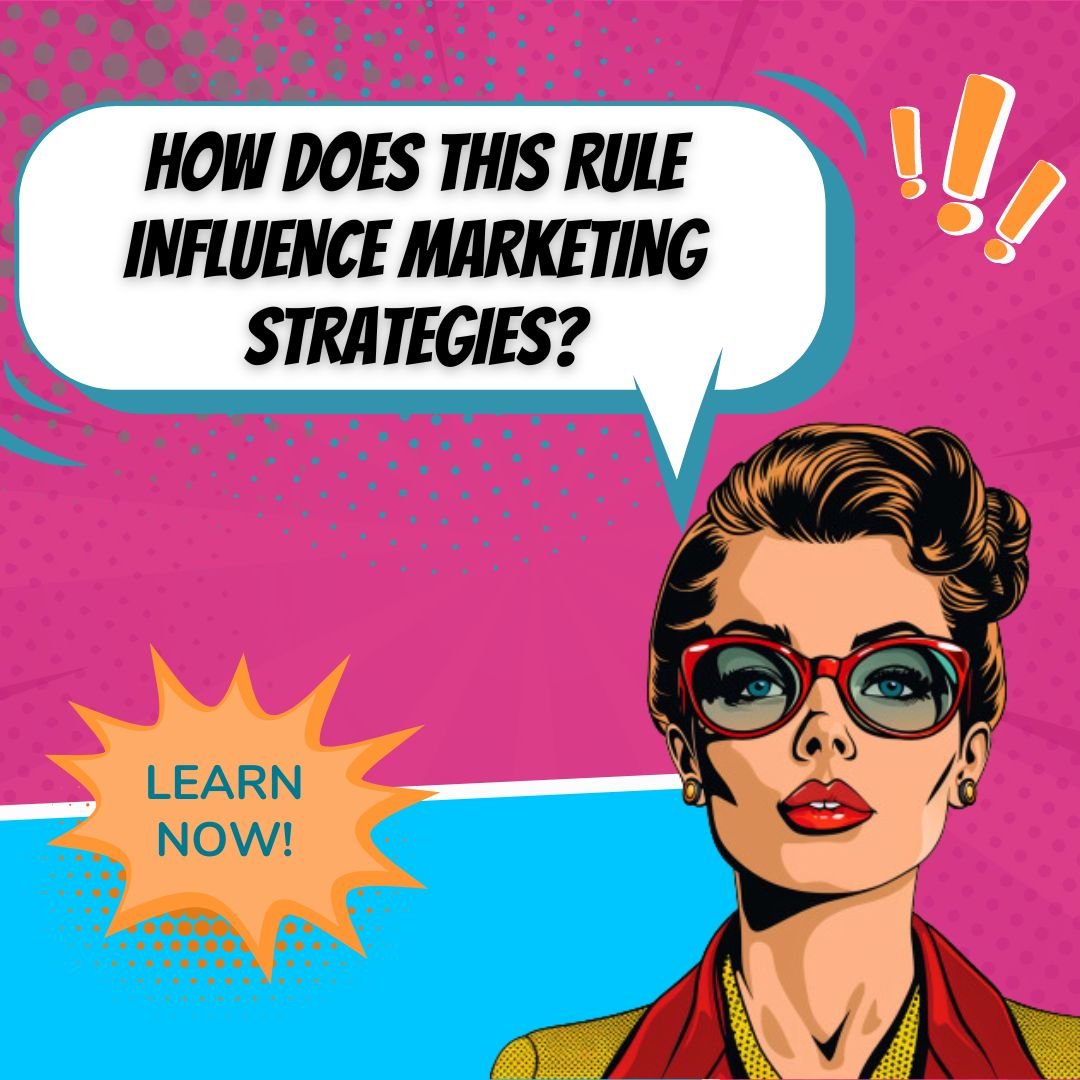Key Takeaways
✅ Focus on Customer Satisfaction: In the landscape of e-commerce, emphasizing customer satisfaction is paramount, with 89% of companies seeing it as their primary competition differentiator. The Golden Rule exhorts us to place customers' needs and desires at the forefront. Actionable recommendation: Develop a robust, user-friendly post-purchase survey platform to garner valuable customer feedback, applying insights to refine your product or service value proposition.
✅ Build Relationships through Personalization: Personalization can drive a 5-15% revenue increase in e-commerce sales. Crafting individualized experiences nurtures lasting bonds between brand and customer. Actionable recommendation: Harness sophisticated CRM software that aggregates purchasing patterns and behaviors to tailor your communication touchpoints, propelling engagement and loyalty.
✅ Embrace Transparency and Authenticity: Statistically, trust in a brand amplifies customer's willingness to buy by 76%. Transparency and authenticity are the bedrocks for cultivating this trust and loyalty. Actionable recommendation: Narrate your brand's journey and ethical practices across social channels, incorporating consumer testimonials that resonate with your audience's values.

Introduction
Has the pivotal Golden Rule been the compass guiding the titans of commerce to their zenith? As e-commerce entrepreneurs, we instinctively know that "treat others as you would like to be treated" transmutes beyond personal ethos into a powerful marketing principle. Yet, how does this age-old axiom translate into actionable strategies that catalyze growth and customer affinity?
Prepare to pivot your perspective and embed this rule deep into your marketing DNA. Immerse in a narrative that transcends basic principles and unveils the science of deep customer understanding, the art of relationship-building through authenticity, and the tactical mastery of consistent, personalized experiences. We're about to embark on a journey, dissecting the Golden Rule of Marketing in the context of the digital agora.
Join us, as we chart the course of drawing closer to your audience than ever before. Expect to uncover revolutionary insights and innovative trends that promise to amplify your revenue, ROAS, and ROI. By the end of this article, not only will the Golden Rule of Marketing cease to be a mystery, but it will also become your most trusted ally in the relentless pursuit of peak e-commerce performance.
Top Statistics
| Statistic | Insight |
|---|---|
| Personalization in Marketing: 91% of consumers are more likely to shop with brands that provide relevant offers and recommendations. (Source: Accenture, 2019) | Personalization is no longer just a buzzword; it’s a core expectation from consumers. Brands that harness data to offer tailored experiences will see increased loyalty and revenue. |
| Impact of Customer Experience: 73% of consumers consider customer experience a significant factor in purchasing decisions. (Source: PwC, 2018) | A seamless and engaging customer experience sets the stage for a lasting relationship between consumer and brand, invoking the timeless golden rule of marketing. |
| Influence of User-Generated Content: 79% say user-generated content highly impacts their purchasing decisions. (Source: Stackla, 2020) | User-generated content is more than authenticity—it's about peer confirmation and community building, pivotal in guiding customer trust and engagement. |
| Trust and Brand Loyalty: 81% of consumers need to trust a brand before buying from them. (Source: Edelman, 2021) | Trust is foundational in commerce, transcending trends. Building trust through transparent practices and quality engagements isn’t optional—it is essential. |
| Mobile Marketing: 54.8% of all website traffic was generated through mobile phones. (Source: Statista, 2021) | The ever-growing mobile engagement highlights an inflection point where mobile-first strategies become business-critical to stay relevant and accessible to consumers. |
Marketing Golden Rule
The Golden Rule has been a guiding principle that transcends multiple spheres of human interaction, from ethical conduct to business dealings. In the context of marketing, the Golden Rule of Marketing encapsulates the notion of treating customers as one would like to be treated. It's about harnessing empathy, ensuring that every marketing effort resonates with the target audience on a deeper level, thus aligning businesses with their customers’ values and expectations.
Understanding Customer Needs
A pivotal element of the Golden Rule of Marketing is empathy. This isn't just about recognizing customer needs; it's about fully immersing oneself in the customer's experience to grasp their pain points and desires intimately. Leveraging such insights, marketers can devise strategies that hit home, offering solutions that truly matter to their audience. It's this genuine understanding that transforms general marketing into value-laden communications that customers appreciate and respond to.
Building Trust and Relationships
Trust is the cornerstone of any lasting relationship, and marketing is no exception. The application of transparency and authenticity is critical in fostering trust between a brand and its audience. By demonstrating commitment to customer satisfaction and instilling loyalty, companies develop not just a client base, but a community. Sharing behind-the-scenes content, engaging in honest dialogues about products, and consistently delivering on promises are key actions that solidify this bond.

Personalization and Relevance
Personalization is where the Golden Rule of Marketing shines, transforming the customer journey into a curated experience. Data and analytics serve as the roadmap for tailoring marketing messages that speak to individual preferences. Companies like Netflix and Amazon are paragons of personalization, using customer data to recommend content or products, thereby creating highly relevant interactions that resonate on an individual level.
Consistency and Integrity
Brands that align their messaging and branding with consistency and integrity are those that survive the test of time. A consistent voice and visual identity foster brand recognition, while integrity ensures that all marketing practices are ethically grounded. Companies such as Patagonia, who have stayed true to their commitment to sustainability, exemplify how maintaining these principles encourages long-term customer trust and loyalty.
Continuous Improvement and Adaptation
In a dynamic market landscape, the ability to continuously improve and adapt is invaluable. Listening to feedback, leveraging new technologies, and staying ahead of market trends are decisive factors that can make or break a marketing strategy. The agility demonstrated by businesses like Lego, which has adapted to digital play to remain relevant, is a testament to the necessity of evolution in the Golden Rule.
Encapsulating these insights, the Golden Rule of Marketing is fundamentally about creating a customer-centric approach. By focusing on empathy, trust, personalization, consistency, integrity, and a willingness to adapt, businesses can craft marketing strategies that not only resonate but endure. It’s about igniting growth through genuine connections, delivering not just a product but a promise, a narrative that customers are eager to be a part of. It is these principles that empower businesses to not only navigate but thrive in the ever-evolving tapestry of e-commerce.
Inspirational Quotes
1. "Customer satisfaction is key to marketing success in the digital world, with every unhappy customer potentially sharing their experience with thousands online. - Jeff Bezos
"If you make customers unhappy in the physical world, they might each tell six friends. If you make customers unhappy on the Internet, they can each tell 6,000 friends."
2. Creating customer value should not be an afterthought but the essence of your marketing strategy. - Philip Kotler
"Marketing is not the art of finding clever ways to dispose of what you make. It is the art of creating genuine customer value."
3. Truly understanding the customer is the secret to effortless marketing, selling itself by fulfilling the exact needs of the consumer. - Peter Drucker
"The aim of marketing is to know and understand the customer so well the product or service fits him and sells itself."
AI Marketing Engineers Recommendation
Recommendation 1: Craft Personalized Experiences: Personalization is the new currency in marketing, and data abounds to support this. According to a study by Epsilon, 80% of consumers are more likely to make a purchase when brands offer personalized experiences. To live by the Golden Rule of Marketing, treat your customers as you would want to be treated, which today means recognizing their unique preferences and tailoring your offerings to meet those specific needs. Utilize customer data to create individualized marketing messages, recommended products, and content that resonate on a personal level.
Recommendation 2: Embrace Omnichannel Strategies: The customer journey is no longer linear – it's an intricate web of touchpoints across multiple channels. With 73% of shoppers using multiple channels during their shopping journey according to Harvard Business Review, the golden rule translates into providing a seamless experience wherever your customers are. Bridging online and offline experiences through omnichannel strategies ensures customers feel valued and understood, with the flexibility to engage with your brand on their terms.
Recommendation 3: Utilize Predictive Analytics for Future-Proof Decision Making: Predictive analytics is revolutionizing how we apply the Golden Rule of Marketing. This technology goes beyond analyzing past consumer behavior; it offers actionable insights into future trends. By employing tools like Google Analytics predictive metrics or other AI-powered analytics platforms, you can anticipate customer needs before they even express them, aligning perfectly with the golden rule's tenet of doing unto others as you'd have them do unto you. This forward-thinking approach can lead to more precise inventory management, targeted promotions, and enhanced customer satisfaction.

Conclusion
In wrapping up this journey through The Golden Rule of Marketing, we reaffirm the pivotal role of empathy and customer-centricity. When the marketing universe orbits around the customer—when every strategy, every campaign, every touchpoint is crafted with the deliberate intent to understand and address their needs—businesses don’t just sell; they connect and thrive.
Trust and relationships are the currencies of the realm; they are the foundation upon which loyalty is built and sustained. Championing transparency and integrity in each interaction doesn't just prevent churn—it turns satisfied customers into powerful advocates for your brand. And in a marketplace cluttered with noise, the personalized, relevant message is king. Employing data and analytics to cut through the cacophony ensures that your brand speaks directly to the heart of the consumer, yielding remarkable, targeted engagement.
However, even the best strategies will falter without unwavering consistency and integrity. A seamless brand experience across all channels fortifies the customer's journey, reinforcing trust and elevating your brand reputation. Remember: lasting success is a mosaic of reliable experiences, each tile placed with thoughtful consideration. Further yet, let us not overlook continuous improvement and adaptation; they are not mere buzzwords but the engine for dynamic growth. Embrace them, and you will discover the profound agility to dance to the ever-changing rhythm of the market, ensuring your brand remains eternally relevant, resonant, and responsive.
Empower your venture with these golden insights. Fuse them into your marketing framework and observe as they transform not only your approach but your results. Ignite your strategy with clinical personalization, and solidify your stature with the authenticity customers crave. Embracing the Golden Rule of Marketing is more than a strategy; it's a commitment to excellence and to the customer. Begin this transformation today, and craft not just a flourishing business, but a legacy of value and connection.

FAQs
Question 1: What is the Golden Rule of Marketing?
Answer: The Golden Rule of Marketing refers to the principle of treating customers how you would like to be treated yourself.
Question 2: Why is the Golden Rule important in marketing?
Answer: Following the Golden Rule helps cultivate positive relationships between brands and consumers by creating trust and reliability.
Question 3: How does the Golden Rule apply to different types of marketing strategies?
Answer: The Golden Rule applies across various marketing channels, ensuring every interaction with customers aligns with this principle.
Question 4: Can the Golden Rule be applied to B2B marketing?
Answer: Yes, the Golden Rule is equally relevant in B2B marketing, helping to build long-lasting relationships and trust.
Question 5: How does the Golden Rule impact customer experience?
Answer: By following the Golden Rule, businesses can create personalized and positive customer experiences, increasing satisfaction and loyalty.
Question 6: How does the Golden Rule relate to customer-centric marketing?
Answer: The Golden Rule is at the core of customer-centric marketing, focusing on understanding and meeting the needs of customers.
Question 7: What are some practical ways to implement the Golden Rule in marketing?
Answer: Implementing the Golden Rule involves listening to customers, personalizing communications, providing excellent service, being transparent, prioritizing satisfaction, and understanding customer needs.

Academic References
- Levitt, T. (1986). The Marketing Imagination. Harvard Business Review Press. In this seminal work, Levitt stresses the imperative of focusing marketing efforts on customer needs rather than the intricacies of the product, echoing the golden rule: customer-first.
- Kotler, P., & Keller, K. L. (2019). Marketing Management. Pearson Education. A thorough textbook exploring the breadth of marketing management, in which understanding and fulfilling customer needs shines as a pivotal aspect.
- Porter, M. E. (1985). Competitive Strategy: Techniques for Analyzing Industries and Competitors. Free Press. Porter's influential book breaks down how companies can set themselves apart, emphasizing the creation of value for target customers, a concept central to the golden rule of marketing.
- Farris, P. W., Bendle, N. T., Pfeifer, P. E., & Reibstein, D. J. (2010). Marketing Metrics: The Definitive Guide to Measuring Marketing Performance. Pearson Education. This book underscores the critical role of measuring and tracking marketing performance and customer satisfaction, an essential practice for abiding by the golden rule of marketing.
- Ries, A., & Trout, J. (1993). The 22 Immutable Laws of Marketing. HarperCollins. A book that lays out key marketing principles, it includes the law of focus which corresponds with the golden rule of marketing by stressing the significance of understanding and serving a specified target market.
- Kim, W. C., & Mauborgne, R. (2005). Blue Ocean Strategy: How to Create Uncontested Market Space and Make the Competition Irrelevant. Harvard Business Review Press. The authors present the idea of blue oceans—new, untapped markets—and how focusing on customer needs leads to value innovation, correlating with the golden rule of marketing.
- Whiteley, R. (1991). The Customer-Driven Organization: Employing the Kano Model. John Wiley & Sons. Whiteley emphasizes the centrality of adopting a customer-centric approach throughout an organization's culture and decision processes, which is fundamental to the golden rule of marketing.








